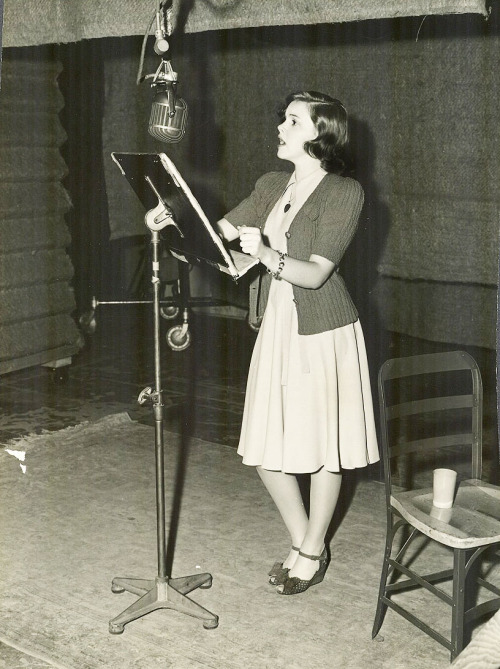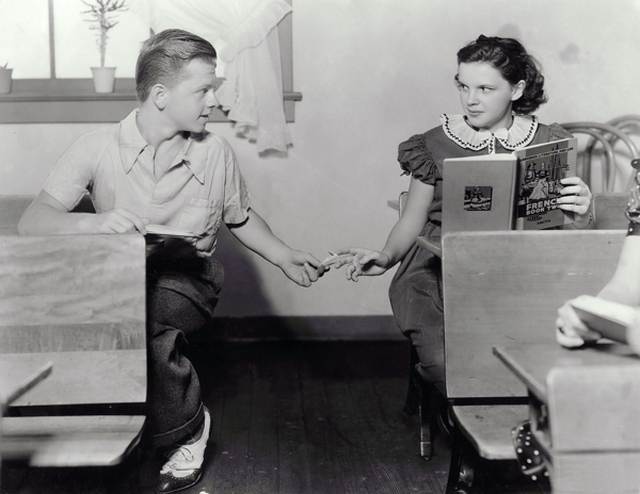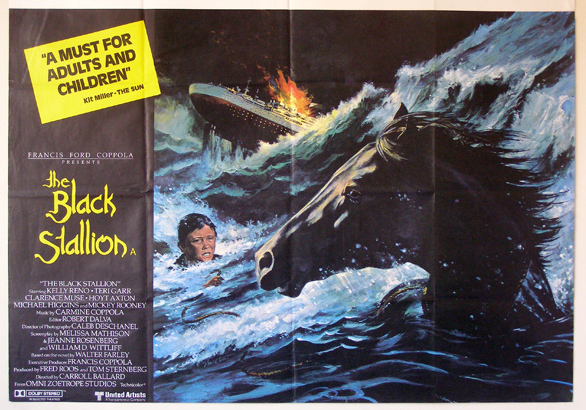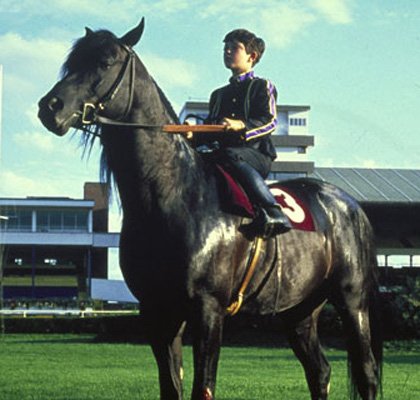Judy by the Numbers: "I'm Nobody's Baby"
 Wednesday, March 23, 2016 at 7:45AM
Wednesday, March 23, 2016 at 7:45AM Anne Marie is tracking Judy Garland's career through musical numbers...
 Today's clip is a plea for the importance of audio preservation. Unlike last week's short, which survives as only 3 minutes of grainy footage of Judy Garland singing to a statue, Andy Hardy Meets Debutante has been remastered and restored several times since its 1940 release. However, Judy completists who watch the movie may be surprised at what a musical it's not. That's because two songs are missing from the film.
Today's clip is a plea for the importance of audio preservation. Unlike last week's short, which survives as only 3 minutes of grainy footage of Judy Garland singing to a statue, Andy Hardy Meets Debutante has been remastered and restored several times since its 1940 release. However, Judy completists who watch the movie may be surprised at what a musical it's not. That's because two songs are missing from the film.The Songwriters: Benny Davis, Milton Ager, and Lester Stanley
The Players: Mickey Rooney, Judy Garland, Lewis Stone, Ann Rutherford, directed by George B. Seitz
The Story: Judy Garland only sings two songs in the entirety of her second Andy Hardy film. Unlike most Mickey/Judy pairings, Andy Hardy Meets Debutante does not follow the "let's put on a show" plotline. Instead, the film follows Andy as he goes further and further into debt trying to woo the heart of a New York debutante. This means two terrible things for Judy Garland fans: less Judy, and less singing. In fact, the movie was originally supposed to have four songs by Little Iron Lungs. Unfortunately, "Buds Won't Bud" and "All I Do Is Dream Of You" were recorded, but cut before being filmed. (Both were eventually reused in later films: "Buds Won't Bud" was sung by Ethel Waters in Cairo, while "All I Do Is Dream Of You" used as Debbie Reynold's excuse to pop out of a cake in Singin in the Rain.) Here's the good news: both Judy versions were saved as studio recordings, and have since been remastered and released. Sometimes even restoration stories get a happy ending.
previous highlights: "The Land of Let's Pretend" (1930), "Dear Mr Gable" (1937), "Got a New Pair of Shoes" (1937),“Zing Went the Strings of My Heart” (1938), "Over the Rainbow" (1939)







